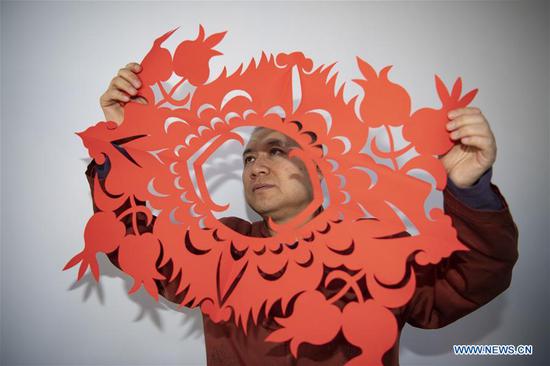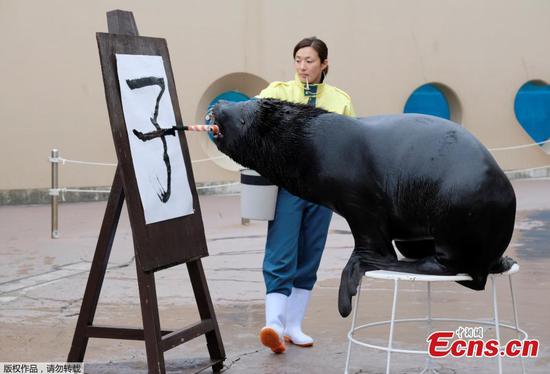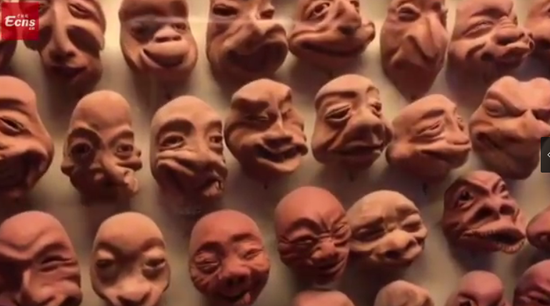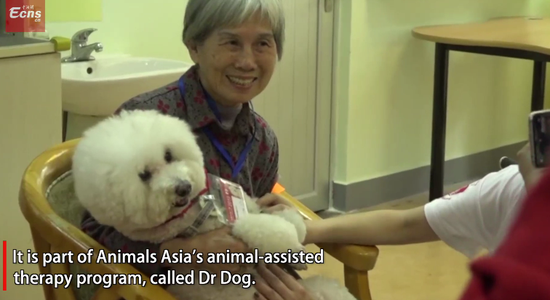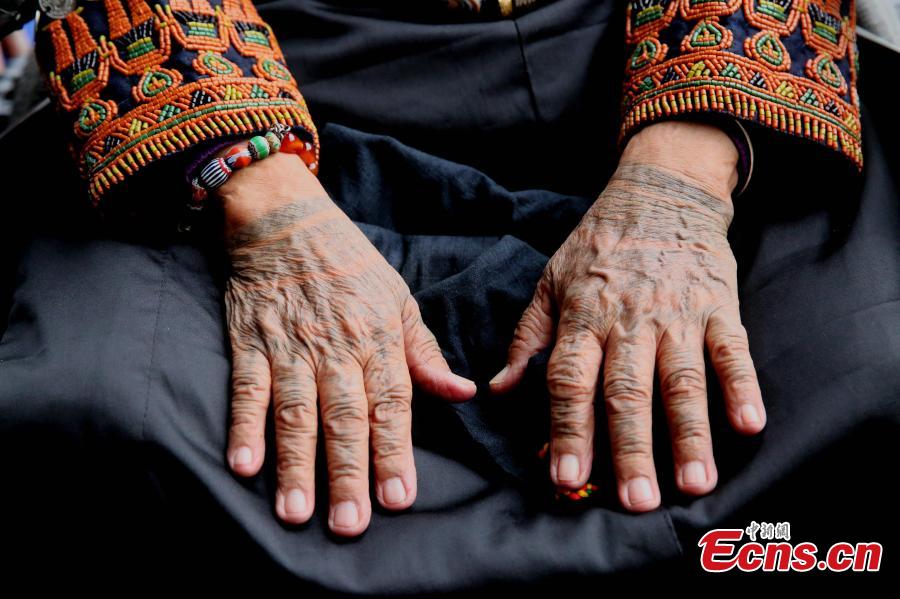
An old lady of Taiwan's Paiwan ethnic group shows tattoo on her hands. Traditionally Paiwan women have tattoos on their hands and men have them on the body such as on the shoulder and the back. Hand tattoos are not only for decoration. More importantly, they tell which family a person belongs to and one's social status. Since the Paiwan group does not have a written language, the tattoo patterns allow people to have a glimpse of their traditional society and to understand the customs and ethics. However, the tattoo tradition has been gradually lost. To date, only 17 women with hand tattoos are alive across the island. (Photo: China News Service/ Shi Yuanfeng)
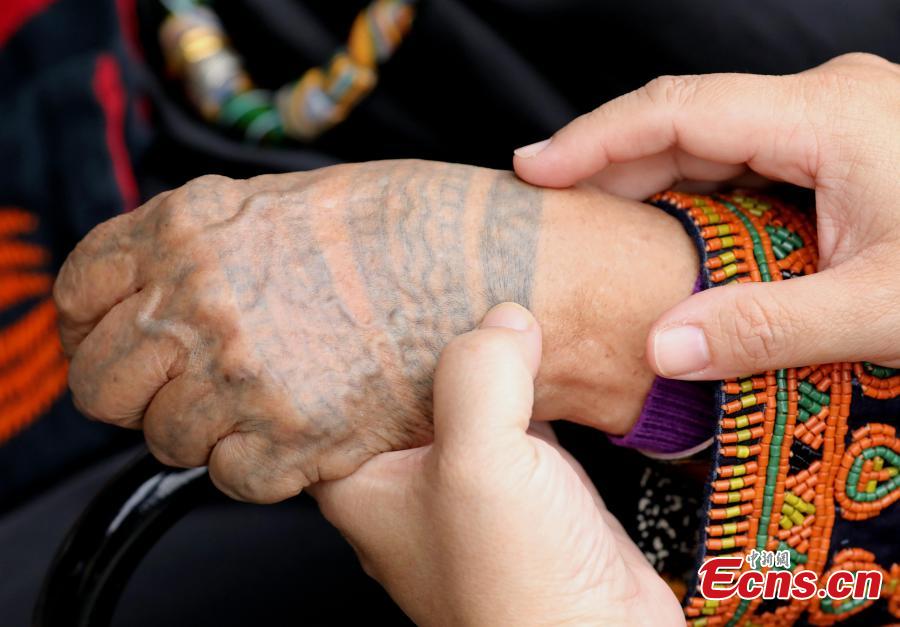
Old ladies of Taiwan's Paiwan ethnic group show tattoo on thier hands. Traditionally Paiwan women have tattoos on their hands and men have them on the body such as on the shoulder and the back. Hand tattoos are not only for decoration. More importantly, they tell which family a person belongs to and one's social status. Since the Paiwan group does not have a written language, the tattoo patterns allow people to have a glimpse of their traditional society and to understand the customs and ethics. However, the tattoo tradition has been gradually lost. To date, only 17 women with hand tattoos are alive across the island. (Photo: China News Service/ Shi Yuanfeng)
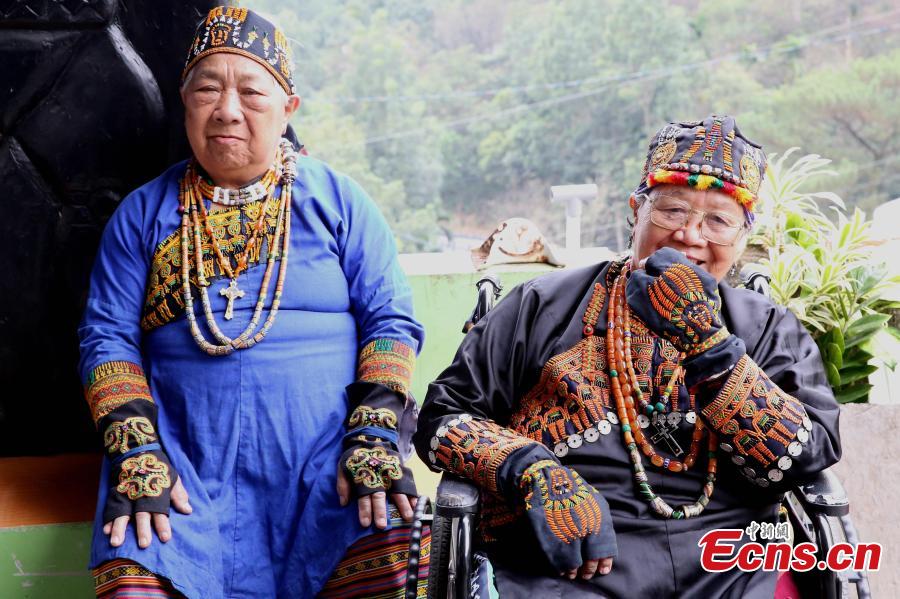
An old lady of Taiwan's Paiwan ethnic group shows tattoo on her hands. Traditionally Paiwan women have tattoos on their hands and men have them on the body such as on the shoulder and the back. Hand tattoos are not only for decoration. More importantly, they tell which family a person belongs to and one's social status. Since the Paiwan group does not have a written language, the tattoo patterns allow people to have a glimpse of their traditional society and to understand the customs and ethics. However, the tattoo tradition has been gradually lost. To date, only 17 women with hand tattoos are alive across the island. (Photo: China News Service/ Shi Yuanfeng)
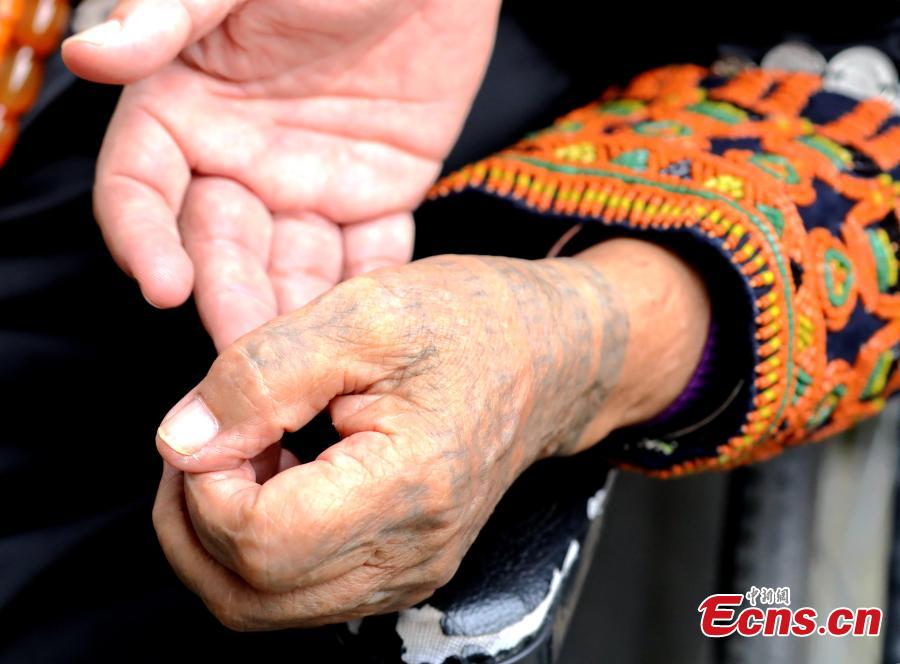
An old lady of Taiwan's Paiwan ethnic group shows tattoo on her hands. Traditionally Paiwan women have tattoos on their hands and men have them on the body such as on the shoulder and the back. Hand tattoos are not only for decoration. More importantly, they tell which family a person belongs to and one's social status. Since the Paiwan group does not have a written language, the tattoo patterns allow people to have a glimpse of their traditional society and to understand the customs and ethics. However, the tattoo tradition has been gradually lost. To date, only 17 women with hand tattoos are alive across the island. (Photo: China News Service/ Shi Yuanfeng)
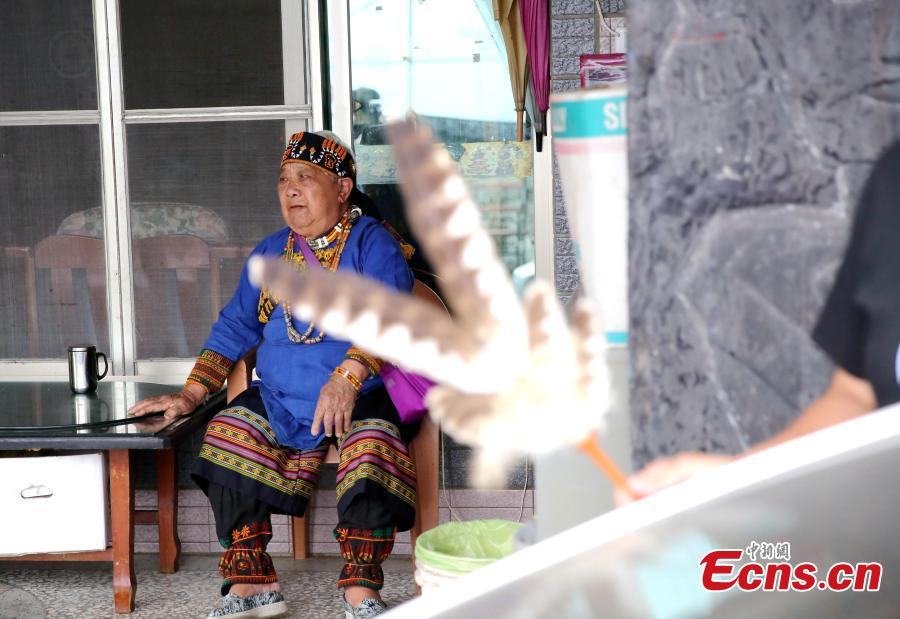
An old lady of Taiwan's Paiwan ethnic group shows tattoo on her hands. Traditionally Paiwan women have tattoos on their hands and men have them on the body such as on the shoulder and the back. Hand tattoos are not only for decoration. More importantly, they tell which family a person belongs to and one's social status. Since the Paiwan group does not have a written language, the tattoo patterns allow people to have a glimpse of their traditional society and to understand the customs and ethics. However, the tattoo tradition has been gradually lost. To date, only 17 women with hand tattoos are alive across the island. (Photo: China News Service/ Shi Yuanfeng)













